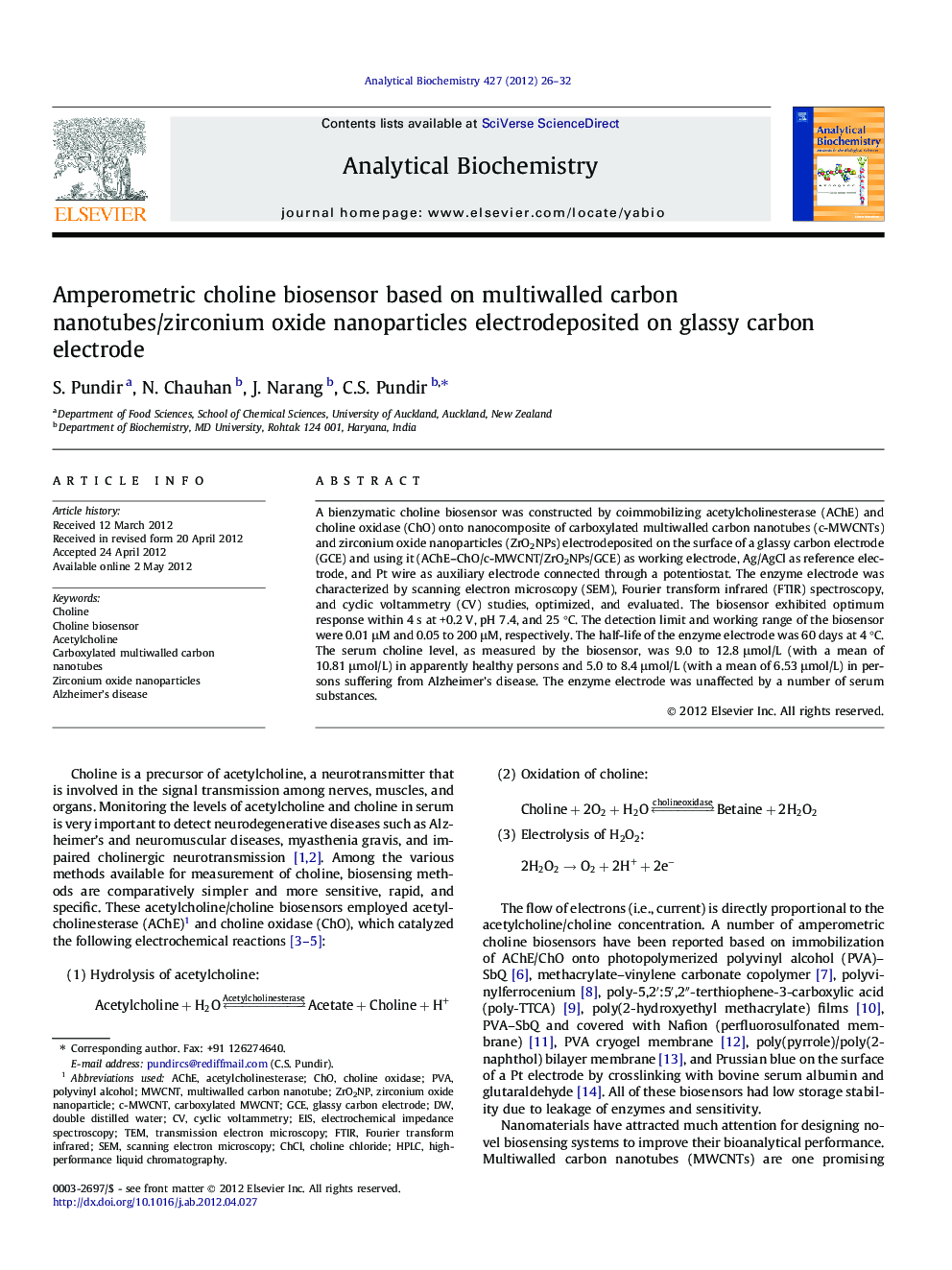| Article ID | Journal | Published Year | Pages | File Type |
|---|---|---|---|---|
| 10532783 | Analytical Biochemistry | 2012 | 7 Pages |
Abstract
A bienzymatic choline biosensor was constructed by coimmobilizing acetylcholinesterase (AChE) and choline oxidase (ChO) onto nanocomposite of carboxylated multiwalled carbon nanotubes (c-MWCNTs) and zirconium oxide nanoparticles (ZrO2NPs) electrodeposited on the surface of a glassy carbon electrode (GCE) and using it (AChE-ChO/c-MWCNT/ZrO2NPs/GCE) as working electrode, Ag/AgCl as reference electrode, and Pt wire as auxiliary electrode connected through a potentiostat. The enzyme electrode was characterized by scanning electron microscopy (SEM), Fourier transform infrared (FTIR) spectroscopy, and cyclic voltammetry (CV) studies, optimized, and evaluated. The biosensor exhibited optimum response within 4 s at +0.2 V, pH 7.4, and 25 °C. The detection limit and working range of the biosensor were 0.01 μM and 0.05 to 200 μM, respectively. The half-life of the enzyme electrode was 60 days at 4 °C. The serum choline level, as measured by the biosensor, was 9.0 to 12.8 μmol/L (with a mean of 10.81 μmol/L) in apparently healthy persons and 5.0 to 8.4 μmol/L (with a mean of 6.53 μmol/L) in persons suffering from Alzheimer's disease. The enzyme electrode was unaffected by a number of serum substances.
Keywords
Related Topics
Physical Sciences and Engineering
Chemistry
Analytical Chemistry
Authors
S. Pundir, N. Chauhan, J. Narang, C.S. Pundir,
